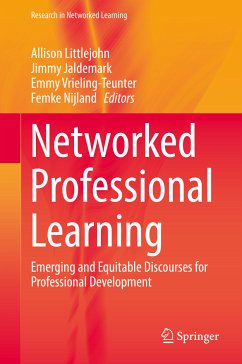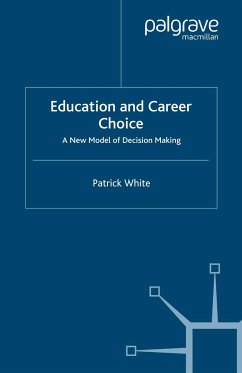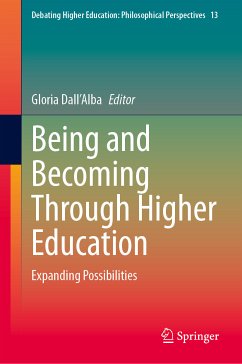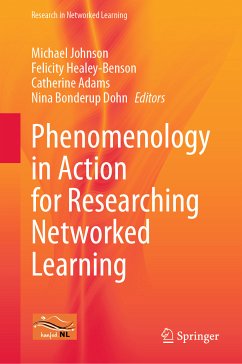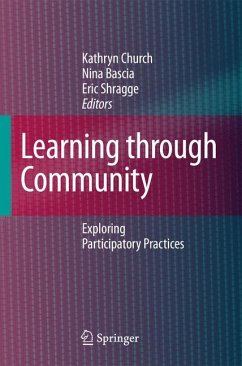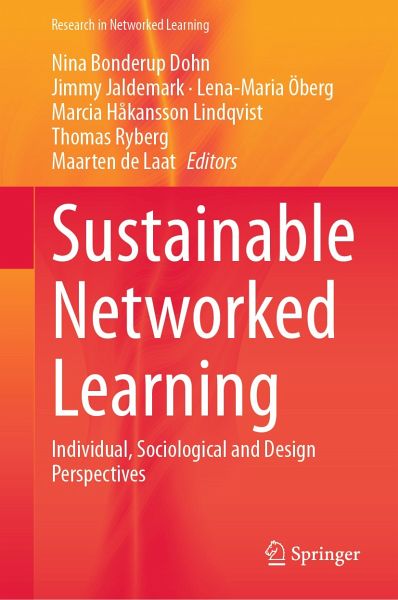
Sustainable Networked Learning (eBook, PDF)
Individual, Sociological and Design Perspectives
Redaktion: Dohn, Nina Bonderup; De Laat, Maarten; Ryberg, Thomas; Håkansson Lindqvist, Marcia; Öberg, Lena-Maria; Jaldemark, Jimmy
Versandkostenfrei!
Sofort per Download lieferbar
120,95 €
inkl. MwSt.
Weitere Ausgaben:

PAYBACK Punkte
60 °P sammeln!
This book provides cutting-edge research on networked learning, focusing on issues of sustainability in design for learning, data use, and networked learning connections. It contributes novel theoretical perspectives on networked learning, its role in society and potential for sustainable learning design. It further contributes a set of exemplary empirical cases - exemplary in terms of their innovative learning designs, pedagogical use of technology in connecting learners, and/or critical reflections on implications of utilizing different technologies to support learning.The book is organized ...
This book provides cutting-edge research on networked learning, focusing on issues of sustainability in design for learning, data use, and networked learning connections. It contributes novel theoretical perspectives on networked learning, its role in society and potential for sustainable learning design. It further contributes a set of exemplary empirical cases - exemplary in terms of their innovative learning designs, pedagogical use of technology in connecting learners, and/or critical reflections on implications of utilizing different technologies to support learning.
The book is organized into four main sections: 1) Data and datafication, 2) Sustainable learning design, 3) Sociological perspectives on Networked Learning, and 4) Networked learning in times of lockdown. Concluding the book is a final chapter which points to emerging issues within the field of networked learning, based on discussion of perspectives from the chapters
The book's focus on the nature of learning and technology-mediated interactions makes it of prime significance to researchers and practitioners in the field of technology-supported teaching and learning.
The book is organized into four main sections: 1) Data and datafication, 2) Sustainable learning design, 3) Sociological perspectives on Networked Learning, and 4) Networked learning in times of lockdown. Concluding the book is a final chapter which points to emerging issues within the field of networked learning, based on discussion of perspectives from the chapters
The book's focus on the nature of learning and technology-mediated interactions makes it of prime significance to researchers and practitioners in the field of technology-supported teaching and learning.
Dieser Download kann aus rechtlichen Gründen nur mit Rechnungsadresse in A, B, BG, CY, CZ, D, DK, EW, E, FIN, F, GR, HR, H, IRL, I, LT, L, LR, M, NL, PL, P, R, S, SLO, SK ausgeliefert werden.





